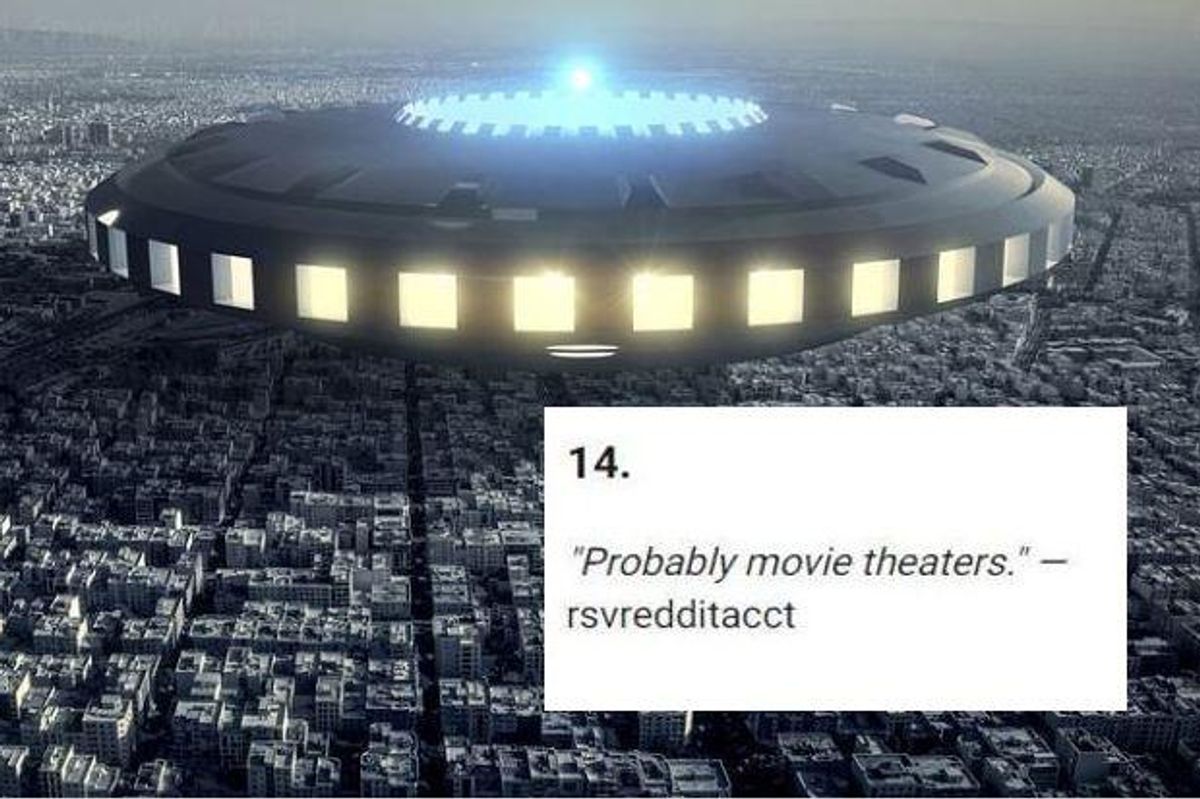People are sharing the things we'll be nostalgic for in 50 years. Here are the best responses.
You don't know what you've got 'til it's gone.

What will the future look like?
A Reddit user asked an innocent question about the future and it exposed a lot of the issues that people worry about today. It also highlighted the things we should appreciate while they are still around.
Klausbrusselssprouts asked the AskReddit forum, “In 50 years, what will people be nostalgic for?” and the responses went two ways. Some people mentioned the things they fear will get a lot worse in the future such as the role that technology plays in our lives and climate change.
Others saw the question as a way of appreciating the things we have now that may not survive over the next few decades.
As the old saying goes, you don’t know what you’ve got till it’s gone, so it’s hard to predict the things that we have today that people will feel nostalgic for in the future.
Back in the late ’80s and early ’90s, nobody would have ever guessed that people would feel nostalgic for everyday experiences such as going to Blockbuster video or the sound of an old dial-up modem.
But a lot of people get a warm, fuzzy feeling when they think about them today.
It’s safe to say that in 50 years, a lot of the real experiences we enjoy today will be replaced by digital technology. So take time to appreciate face-to-face interactions with other people, technology that isn’t implanted into your brain and attending events in person.
Here are 17 of the best responses to the question, “In 50 years, what will people be nostalgic for?”
1.
"Owning something you don't pay a subscription for." — JohnnyNumbskull
Switchplayerclassic added:
"THIS is exactly what I hate rn about everything."
2.
"Drinking water from the tap." — Credible cactus
3.
"Grandparents will say to their grandkids, 'When I was your age, I had to get off the screen and actually GO to school.'" — Truck_Stop_Sushi
4.
"Privacy. Even babies are overexposed today." — birdiewings
5.
"Being able to do basic maintenance on your car without needing a shop manual and a years salary worth of special tools." — kilroy-was-here-2543
6.
"Keys. Even more specific vehicle keys." — UpMan
7.
"Social media. Not because it’s good, but because whatever comes next will probably suck more." — RockoTDF
8.
"The number of wild animals that exist and can be seen. They are already on the decline." — SpikedBubbles
9.
"Wired earbuds with an actual headphone jack. Not USB version 93 delta." — Rodeo6a
10.
"The abundance and availability of power, water, and food." — wrath__
11.
"Retail shopping. There will be these cutesy, extremely expensive retro shops selling things you'd find at the convenience store." — shay1990plus
12.
"I'd say people will miss being uncontactable. Like back in the day, you could just go to your bedroom, and block the rest of the world away for a couple of hours. Now we've got video calls, phone calls, texts, emails. Urgh." — mr_wernderful
13.
"Having sex with someone who isn't a robot." — Clarenceworley480
14.
"Probably movie theaters." — rsvredditacct
15.
"Life before covid." — ButterflyGirlie
16.
"Human made art and music without the use of AI. Or even just knowing it was made without the use of AI tools like DALL-E 2 or similar. Kind of like how before autotune you knew for certain a singer could sing that way." — ConfidentlyNuerotic
17.
"Democracy." — K3b1N
- 19 super-specific memories that are giving people instant childhood ... ›
- Relive your '80s nostalgia with this vintage ABC promo video ... ›
- 'Top Gun: Maverick' is drumming up intense Gen X nostalgia ... ›
- 17 nostalgic sights, sounds and feels that can only be appreciated by 70's kids - Upworthy ›
- 19 things that are disappearing - Upworthy ›
- Teacher shows Smashing Pumpkins song to sixth graders - Upworthy ›

